
According to a 2019 survey carried out by Consumer Reports, an estimated 64 million Americans have tried CBD. This is fair to say that CBD has grown in popularity in recent years, as people are beginning to realise the potential benefits that this natural compound can offer.
But with the industry still largely unregulated and many low-quality brands taking advantage of the trend, potential users may still have concerns about the safety and side effects of using CBD oil.
With so much misinformation and unanswered questions going around, I thought it would be a good idea to answer one of the more common questions people seem to be asking online: can you overdose on CBD oil?
But, before we get into that, let's take a step back and look at what CBD oil actually is.
Cannabidiol, or CBD as it's more commonly known, is one of over a hundred naturally occurring cannabinoid compounds in the Cannabis plant.
These cannabinoids interact with the body's endocannabinoid system, a network of receptors present throughout the body that was only discovered relatively recently in the early 1990s.
While research is still in its preliminary research period, it's thought that the endocannabinoid system could be involved in many of the body's functions, including affecting the immune system, appetite, pain, mood, and memory.
Just as iron is vital for the normal function of red blood cells, our endocannabinoid system also needs support. As CBD doesn't make up a natural part of our diets, most people aren't doing enough to support their endocannabinoid system, which is why the discovery of CBD oil is so exciting.
CBD oil is an extract of the Cannabidiol compound taken from the Cannabis plant. The oil is then generally mixed with a carrier oil like MCT oil or hemp seed oil and can be taken sublingually (under the tongue) or added to food and drinks.
CBD oil doesn't contain any THC, the psychoactive compound found in Cannabis that makes you high, so it's perfectly legal to take in the UK and most other countries around the world.
Now, let's return to the original question: can you overdose on taking too much CBD oil?
The short answer is no - you can't overdose on CBD oil.
CBD is known as a 'safe compound', meaning that it has a very low toxicity level and is very well-tolerated by the human body, even in very high doses.
A report by the World Health Organization (WHO) stated that CBD was found to have relatively low toxicity, noting that it has "no effect on a wide range of physiological and biochemical parameters or significant effects on animal behaviour unless extremely large doses are administered."
Those extremely high doses refer to a level above 30 mg of CBD per kg orally daily for 90 days in monkeys.
To put that into perspective, for an 11 Stone (70kg) adult, that would be about the equivalent of using an entire bottle of our Signature Blend No.3 every day for 90 days.
Given the recommended dose is only 2-3 drops administered 2-3 times per day, you can see that it is highly unlikely that any user could overdose on CBD oil.
While there are occasional instances where people have reported side effects from CBD oil, it is typically well tolerated by most users.
Some side effects noted in studies have been fatigue, changes in appetite, and diarrhoea, but these were rare among participants.
These side effects can often be caused by users taking too much CBD oil too quickly without giving their body time to adapt. Simply reducing the dosage or stopping completely will stop the side effects with no lasting repercussions.
Generally, taking CBD oil is a safe way to support your endocannabinoid system, with no risk of overdose or severe side effects.
If you have any concerns, we always recommend speaking to your healthcare professional before taking CBD oil. They will be able to advise you on whether they think it is appropriate for you, as well as recommend a therapeutic dose.
We also recommend starting with a lower dose and building up gradually, as this will allow you to see how your body responds to CBD oil.
There are a few things you can do to minimise the risk of side effects when taking CBD oil:
As I mentioned, it's always best to start with a low dose and gradually increase it until you find the dose that works best for you. This is especially important if you're new to taking CBD oil, as your body will need time to adjust.
If you experience any side effects, you must listen to your body and stop taking CBD oil if you feel any discomfort. Be sure to also speak to your healthcare professional if you have any concerns.
One of the most important things to consider when choosing CBD oil is its quality. Make sure you select an oil that has been third-party lab tested, as this will ensure that it contains the amount of CBD advertised on the label.
You should also check if the oil is full spectrum, broad-spectrum, or CBD isolate. Full spectrum and broad spectrum oils contain other cannabinoids and terpenes in addition to CBD, which can offer additional health benefits.
CBD isolate is a pure CBD form that does not contain other cannabinoids or terpenes.
Selecting high-quality CBD oil from a reputable company is the best way to minimise the risk of experiencing any side effects.
If you do experience any side effects from taking CBD oil, there are a few things you can do to help relieve them:
When taking CBD oil, it's essential to stay hydrated by drinking plenty of water. This will help flush toxins from your system and keep your body functioning properly.
Eating healthy foods and maintaining a balanced diet is always important, but it's especially important when taking CBD oil. Eating nutritious foods will help to support your body and reduce the risk of side effects. I also recommend taking your CBD oil with food, as this can help to reduce any stomach discomfort.
Getting plenty of rest is vital for overall health, but it can also help reduce CBD oil's side effects. When you're well-rested, your body is better able to function properly and heal itself.
Remember, your side effects may be a result of your body's lowered blood pressure, so getting plenty of rest will help improve blood circulation and reduce any discomfort.
Another common question we get asked about CBD oil is whether or not you can get addicted to it.
Again, the answer is no.
While there is a limited amount of research into the topic, evidence from controlled experimental research suggests that CBD is not associated with abuse potential.
In fact, a study in 2019 found that, compared to a placebo, CBD reduced drug cue-induced craving and anxiety in the participants who all had a history of heroin abuse but were not current users.
Other relevant animal studies have shown that CBD does not produce the same reinforcing effects as other drugs like cocaine or methamphetamine, meaning it is not addictive.
More research is needed in this area, but current evidence suggests that CBD oil is not addictive and does not lead to abuse or dependence.
There are no firm rules about how much CBD oil users should take, as there are a number of factors that can affect how each individual responds.
A dosage that works for one person may be too little for another, so we recommend that our users follow the doses provided with their CBD oil, and remain mindful of how their body is responding.
If you’ve never taken CBD before, it’s worth starting with a lower strength product and gradually increasing the strength of your oil if you’re unhappy with the results.
It’s also worth noting that we have had a number of users who don’t think their CBD oil is doing anything for them and stop taking it, only to find that a number of issues reappear that they hadn’t even noticed had gone; so try taking a break from CBD oil if you don’t think it’s a good fit for you, and keep track of any issues or niggles that crop up again.
In the unlikely event that you do experience any side effects, try reducing your dose to see if that helps, or stop taking the oil completely.
Although CBD oil is now legal in many countries around the world, the fact that it is a new industry means that there are some companies out there that are simply trying to capitalise on the trend by selling inferior products.
Choose a company that is transparent about where it’s products are produced, and who have their products certified by a lab, as there have been instances where people have unknowingly used CBD oil with an illegal level of THC in it, and fallen foul of the law.
We also recommend that users avoid products using CBD isolates, instead opting for a full spectrum CBD oil, as this increases the effectiveness of the CBD by leveraging the entourage effect.
Make sure also to check the third-party lab reports for any CBD oil you're considering, as this will give you an accurate idea of its cannabinoid and terpene profile, as well as its purity.
CBD oil is a very safe and effective way to support your endocannabinoid system. You cannot overdose on CBD oil, and there are no serious side effects associated with its use. According to relevant animal studies and human clinical data trials, CBD users are not at risk of developing dependence or abuse.
As with anything, it's always best to speak to your healthcare professional before taking CBD oil, especially if you are pregnant, breastfeeding, or taking other medications.
If you’re unsure about whether or not CBD oil would be a good fit for you, we offer a free health advice service with me, Nick, a registered Osteopath with more than 15 years’ experience in the natural health field; so feel free to get in touch if you do have any questions.
No, there is no evidence that CBD oil is lethal. According to a 2011 study published in the Current Drug Safety journal, lethal doses of CBD were found to be 20,000 mg, consumed almost at once.
To put this into perspective, the suggested starting dose of CBD is 5-10 mg/day. So, a person would need to consume 2000 times the suggested starting dose to reach a lethal dose of CBD. In other words, it is impossible to consume enough CBD oil at once to reach a toxic dose.
No, there is no risk of overdosing on CBD oil. CBD oil is non-toxic and has been shown to be well-tolerated by humans, even in large doses.
The effects of full spectrum CBD oil can be felt within minutes or hours, depending on the amount consumed and the person's physiology. For some people, the effects of CBD oil are felt immediately, while others may not feel any effects for hours.
CBD oil can be taken in various ways, including sublingual drops, capsules, and edibles. The method of consumption will affect how long it takes to feel the effects of CBD oil.
For instance, when taken sublingually (under the tongue), the effects of CBD oil are felt within minutes. When you take CBD capsules it can take up to an hour or two to feel the effects of CBD oil. And when taken in edible form, it can take up to 2 hours to feel the effects of CBD oil.
The amount of CBD oil you should take depends on a number of factors, including your weight, the condition you are treating, and the severity of the condition.
The general rule of thumb is to start with a low dose and increase gradually until you find the dose that works for you. For more information on finding the right dose of CBD oil, check out our CBD Dosing Guide.
CBD oil stays in your system from a few hours to a month. However, this can vary depending on several factors, including your weight, the amount consumed, and the way you consume it. The half-life of CBD oil is around 1-5 days. This means that it will take around 1-5 days for the effects of CBD oil to wear off.
No, CBD is not known to make people sick. In fact, CBD is often used to treat nausea and vomiting. However, some people may experience nausea, vomiting, and diarrhoea when taking large doses of CBD oil. If you experience these side effects, starting with a lower dose and increasing gradually is best.
There is no evidence that pets can overdose on CBD. Pets and humans respond to CBD oil the same way. However, pet parents should be cautious when giving their pets CBD oil. The recommended starting dose for pets is 0.25 mg/kg body weight.
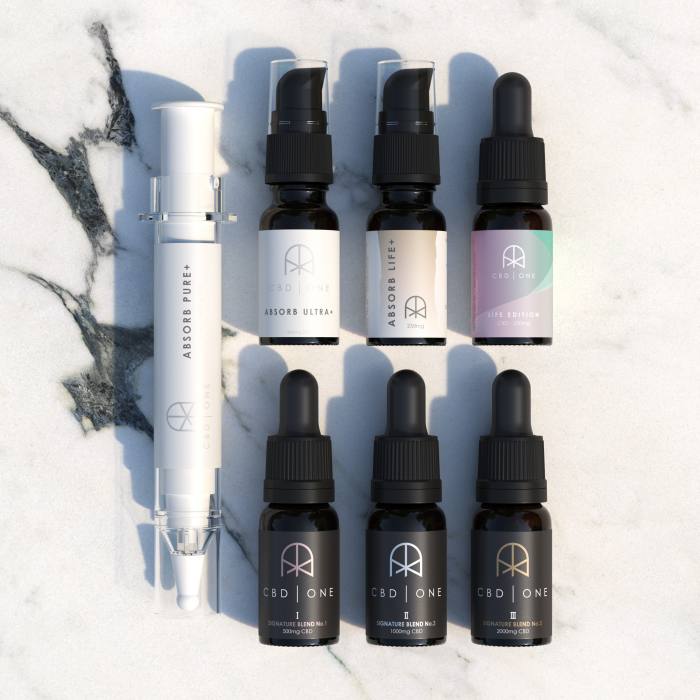
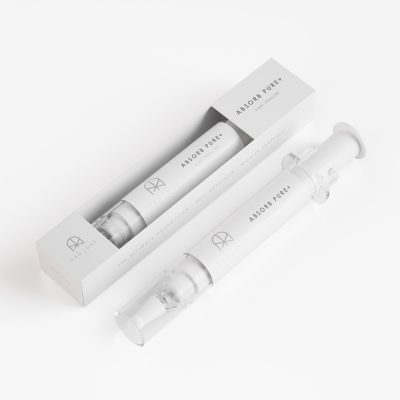
Bioavailability:?Bioavailability | 99% |
CBD content:?CBD content | 800mg | 1600mg | 4000mg |
Cannabinoid spectrum:?Cannabinoid spectrum | Full |
| Daily use: | Once daily |
Best for:?Best for | Powerful water-soluble option |
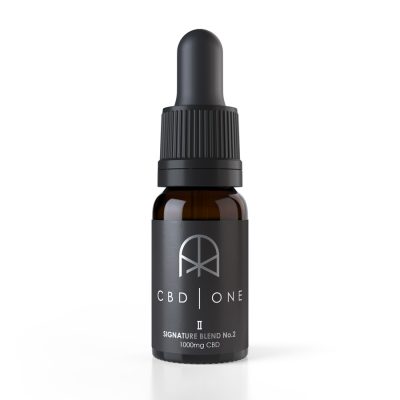
Bioavailability:?Bioavailability | 12 % |
CBD content:?CBD content | 1000mg | 2000mg | 5000mg |
Cannabinoid spectrum:?Cannabinoid spectrum | Full |
| Daily use: | 1-3 times |
Best for:?Best for | All round oil |
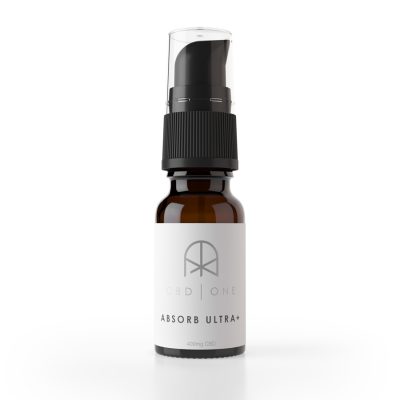
Bioavailability:?Bioavailability | 99% |
CBD content:?CBD content | 400mg | 800mg | 2000mg |
Cannabinoid spectrum:?Cannabinoid spectrum | Full |
| Daily use: | Once daily |
Best for:?Best for | Great all-rounder |
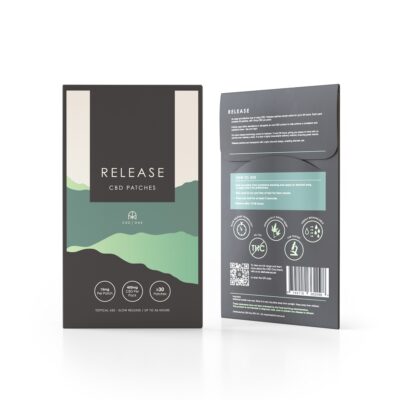
Bioavailability:?Bioavailability | 40%+ |
CBD Content:?CBD Content | 450mg | 900mg | 1350mg |
Cannabinoid spectrum:?Cannabinoid spectrum | Pure CBD |
| Daily use: | Once |
Best for:?Best for | Round the clock super-effective dosing |